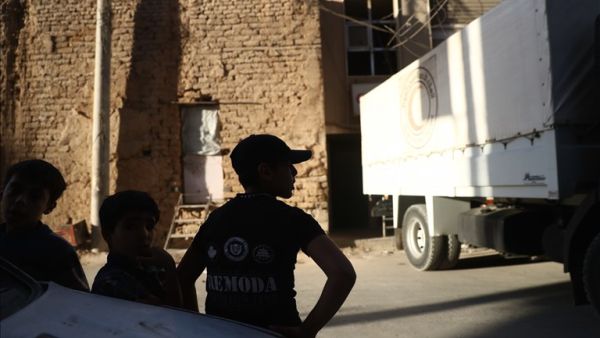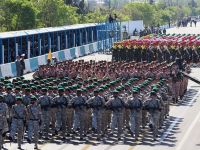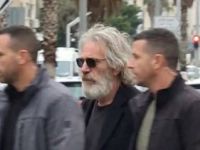Russia's "humanitarian pause" went into effect Thursday in Aleppo, but clashes were reported along the dividing line between areas controlled by the rebels and the government, and civilians were unable to leave besieged areas.
One point of conflict was in Bustan al-Qasr, an area which was meant to be used as a corridor to allow civilians and wounded people to leave eastern Aleppo and enter government-held districts.
Rami Abdel Rahman, head of the Britain-based Syrian Observatory for Human Rights, confirmed both rebels and Syrian government forces were firing their weapons, with the warring factions blaming each other for starting the escalation.
"The regime soldiers started using their snipers against areas in Bustan al-Qasr and Salaheddin and we returned fire," Yasser al-Youssef of the rebel group Noureddine al-Zinki movement said.
Syria's state-run SANA news agency said rebels were using sniper fire and shelling to attack the corridor area in the early hours of the morning.
The observatory reported three civilians at the crossing area were injured.
The planned pause, which was extended on Wednesday for an additional three hours, was to run from 8 am until 7 pm (0500 to 1600 GMT).
The state-run Syrian News Agency (SANA), quoting a statement by the general command of the Syrian army, said that the army would extend the truce for three days.
The extension is intended to give UN and Red Crescent representatives enough time to evacuate sick and injured people and civilians from the rebel-held enclave.
But civilians and rebels have said that they will not leave unless the humanitarian corridors are supervised by the UN.
"Without UN supervision no one will leave," Ibrahim al-Hajj of the White Helmet rescue team told dpa from inside Aleppo.
The Syrian Foreign Ministry announced on Wednesday that troops had pulled back from two designated humanitarian corridors to facilitate the transport of rebel fighters from eastern Aleppo to areas of their choice, Syrian state news agency SANA reported.
But rebels have also said they will not leave eastern Aleppo, the last remaining major urban centre controlled by opposition forces.
Turkish President Recep Tayyip Erdogan, a staunch backer of the Syrian rebels, agreed with his Russian counterpart Vladimir Putin to try and drive militant group Fatah al-Sham Front (formerly al-Nusra Front, an al-Qaeda affiliate) out of Aleppo.
"To this end, we have given the necessary orders to our friends," Erdogan said on Wednesday, without giving further details of his phone conversation with the Russian leader.
Rebel sources said there was no sign of movement in this regard and there was no formal communication on the proposal.
Pro-government television aired live footage from the crossing area in the divided city. A loudspeaker could be heard blaring, "There are two humanitarian corridors opened for civilians and wounded to leave eastern Aleppo."
The UN has said that security fears, the fear of arrest and the presence of Syrian troops along the corridors designated by Russia have prevented civilians from using them to leave the enclave.
Some 250,000 to 300,000 people are thought to be trapped in eastern Aleppo, with minimal access to food and medical care after hospitals have been repeatedly hit in airstrikes, apparently by Russian or Syrian forces.
According to the UN, 406 people were reported killed and 1,384 were injured in eastern Aleppo in the last several weeks, while 91 were killed and 492 injured on the government-held side.








